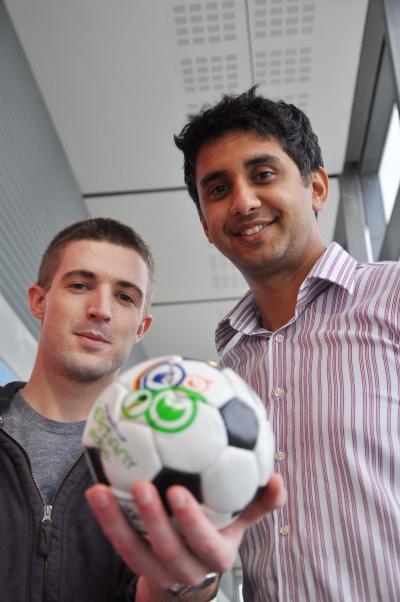A team of academics from the University of Southampton thinks they will top the rest of the English Fantasy Football League when the new football season kicks off next month in England.
By football, we mean Soccer to Americans. Sorry if we confusingly used the term for the game that actually uses feet and lets people who use their feet in the Hall of Fame.
Ph.D. student Tim Matthews, along with visiting researcher George Chalkiadakis and Dr. Sarvapali Ramchurn, Lecturer in Computer Science, developed an artificial soccer manager that in their tests has ranked, on average, in the top one per cent of the 2.5 million players in the official English Fantasy Football League, run by the Barclays Premier League. The Artificial Intelligence (AI) software uses an "extensive series of algorithms" - whatever that means, since every phone uses an extensive series of algorithms just to turn on - to analyze players' performances and statistics before picking its football team each week.
They say it goes into more depth than any dedicated fantasy football player and in their tests its performance has been successful.

They tested the software by running a controlled experiment seeing how it would have performed in last year's Premier League Fantasy Football League and at one point it managed to finish in the top 500 players. This year they are planning to enter it for real to see how it fares against its human competitors - and in collaboration with human players.
Until now, the team have just used the AI software-controlled machine, but this year they will introduce a human element in the hope of improving their record still further.
"Our previous tests have shown that a machine working on its own will perform better than millions of humans. But a machine can't take into consideration if a player is injured (and still plays), has low morale or has personal issues and may not perform at his best," says Ramchurn. "So this time we will be using humans and the machine working together as a team so that the humans can add this subtle information into the system and, together with the software's extensive analysis, it will hopefully improve the machine's success rate, though in some cases, this could also potentially make it perform worse if humans put in inaccurate information."
The team are currently working on a web application that will allow next season's players to get advice from the artificial manager and to play against it.
The software was developed as part of Matthews' dissertation for his Master of Artificial Intelligence degree in 2011. A paper based on the work was subsequently presented at the Artificial Intelligence conference (AAAI, 2012) in Toronto.






Comments